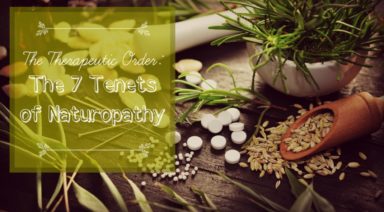Is Elysium Health Basis the New Fountain of Youth?

Humanity has been searching for a remedy to fight the onset of aging since Ponce de León. In an industry historically filled with snake oil salesmen, it’s difficult to trust anyone pitching a drug promising to curtail the inevitable effects of father time. Now a group of Nobel laureates and recognized scientists are putting their name behind a supplement, called the Elysium Health Basis, which they believe can slow the process.
A True Anti-Aging Supplement
Elysium Health Basis is a daily supplement that combines two precursors to NAD+, a coenzyme that fights inflammation, disease, and physiological decline. NAD+ levels decrease as we age, especially in the skin and brain. This co-enzyme is known to help repair DNA and activate Sirtuin, or SIRT enzymes, known to play a role in a number of bodily functions ranging from circadian rhythm, to metabolism, and fat storage.
There are currently a number of supplements out there, like Niagen, that contain nicotinamide riboside, NR, the precursor to NAD+. These supplements promise to activate this coenzyme and are the result of the latest scientific discoveries that will supposedly help us achieve vitality or at least extend the healthy period of your life.
The Elysium Health Basis adds another NAD+ precursor known as pterosilbene (PT) to its mix, which is a derivative of reservatrol, a phenol often recognized in the health supplement world due to its natural prominence in red wine.
These two simple ingredients are the primary components of the Elysium Health Basis supplement that is backed by seven Nobel Laureates and 13 leading names in science and medicine; all of whom are backing a product with ingredients found in blueberries and milk. But have they really discovered an effective anti-aging drug or just another devious nostrum?
Telomere Supplements
One of the more profound understandings recently made in aging involves telomeres, or the caps on the ends of our chromosomes that begin to unravel and shorten as we age.
With only a few exceptions, the cells in our bodies divide, replicate, and replace themselves on a regular basis throughout our lives. As this happens our telomeres grow progressively smaller and once they get too small, our cells start dying.
Skin cells participate in this process of replication and replacement every few weeks, so they are most susceptible to shortening telomeres – one of the reasons why aging can be so distinct in our appearance.
The good news is that scientists have pinpointed an enzyme called telomerase, that mitigates this process. Telomerase slows this decaying process and can potentially even lengthen telomeres to function as if they were younger.
But messing with telomerase is tricky, too much can give immortality to certain cancer cells and increase the likelihood of getting cancer, while too little telomerase can leave one susceptible to getting cancer by diminishing that which allows our cells to regenerate; it’s a fine line.

Some of the factors that were found to be beneficial to telomeres were commonly known healthy routines like antioxidants, exercise, and reduced exposure to harmful agents like carcinogens and stress.
Though, one of the bigger takeaways was that a calorie restricted diet positively impacted the life of telomeres. This concept had already been proven in rodents, whose lifespan had been shown to increase by as much as 66 percent in studies involving calorie restriction or CR.
Before founding Elysium Health, Leonard Guarente studied the effects of CR on sirtuin enzymes in relation to these studies showing longevity in rodents. Sirtuin enzymes act as nutrient sensing regulators in the body’s metabolic system.
This eventually led to the discovery of reservatrol, an antioxidant found in the skin of grapes that has a multitude of health benefits. Reservatrol happens to activate these sirtuin enzymes that are necessary for longevity, but are typically only activated when the body experiences CR.
What Guarente discovered was that this process tricks the body into thinking that it is in starvation mode. The same concept of metabolic austerity leading to cellular longevity was found in response to an exotic bacterium found on Easter Island known as rapamycin.
But drinking red wine alone won’t give you a large enough dose unless you drink liters of it, or happen to live in France. And the negative impact of drinking that much wine will probably cancel out the positive effects.

Guarente’s supplement contains a highly condensed source of reservatrol, so you can activate those sirtuin enzymes without consuming large quantities of alcohol. This, combined with NAD+ activators, is the Nobel laureate backed key to longevity.
One thing that lends credibility to the Elysium Health Basis is that it is in the process of undergoing a clinical study on 120 human subjects, a process that is not required by the FDA to allow a supplement on the market.
Elysium originally skipped the FDA-approval process by marketing the product as an aging supplement. Since age isn’t a disease, the FDA doesn’t regulate supplements that claim to treat it.
One might also look at the dietary and lifestyle habits of those who live in Blue Zones, areas of longevity that defy global and national statistics. These diets often include high concentrations of polyphenols containing reservatrol.
At $50 for a month’s supply, the Elysium Health Basis isn’t cheap, but if it could be definitively shown to improve health or longevity it may be worth it. Some in this field of study have said that instead of focusing on an extended lifetime, the focus of these drugs should be on extending the healthy part of your life. That sounds more feasible.
Study Claims Humans Can Live to 150 Years Old? But What's the Catch?

A new study on longevity says humans could live up to 150 years old. But does the science back up this claim?
A recent study by Singapore-based biotech firm GERO, examine the changes in blood cell counts and the number of steps taken by test subjects in the US, UK, and Russia. By studying these variables they found that people did not steadily decline as they age, but their resilience, or ability to bounce back from illness, stepped down over time. And barring disease or accidents, the maximum lifespan would be 150 years old when the body’s capacity for resilience would be exhausted.
Bill Andrews, president and CEO of Sierra Sciences, has studied anti-aging and telomeres for 30 years and is skeptical about this new claim.
“There have been at least five publications, and often times when I speak at conferences I’ll show those publications, in the last 25 years they’ve done a much better job of narrowing it down, and they’ve all come down to somewhere between 120 and 125 years,” Andrews said.
“Ok, so this new study that’s come out that claims 150 isn’t actually saying they’ve extended it out from 125 to 150, the accuracy of their data is not allowing them to give narrow answers. And when they contacted the press to make this press release about their study, they focused on the 150.”





































